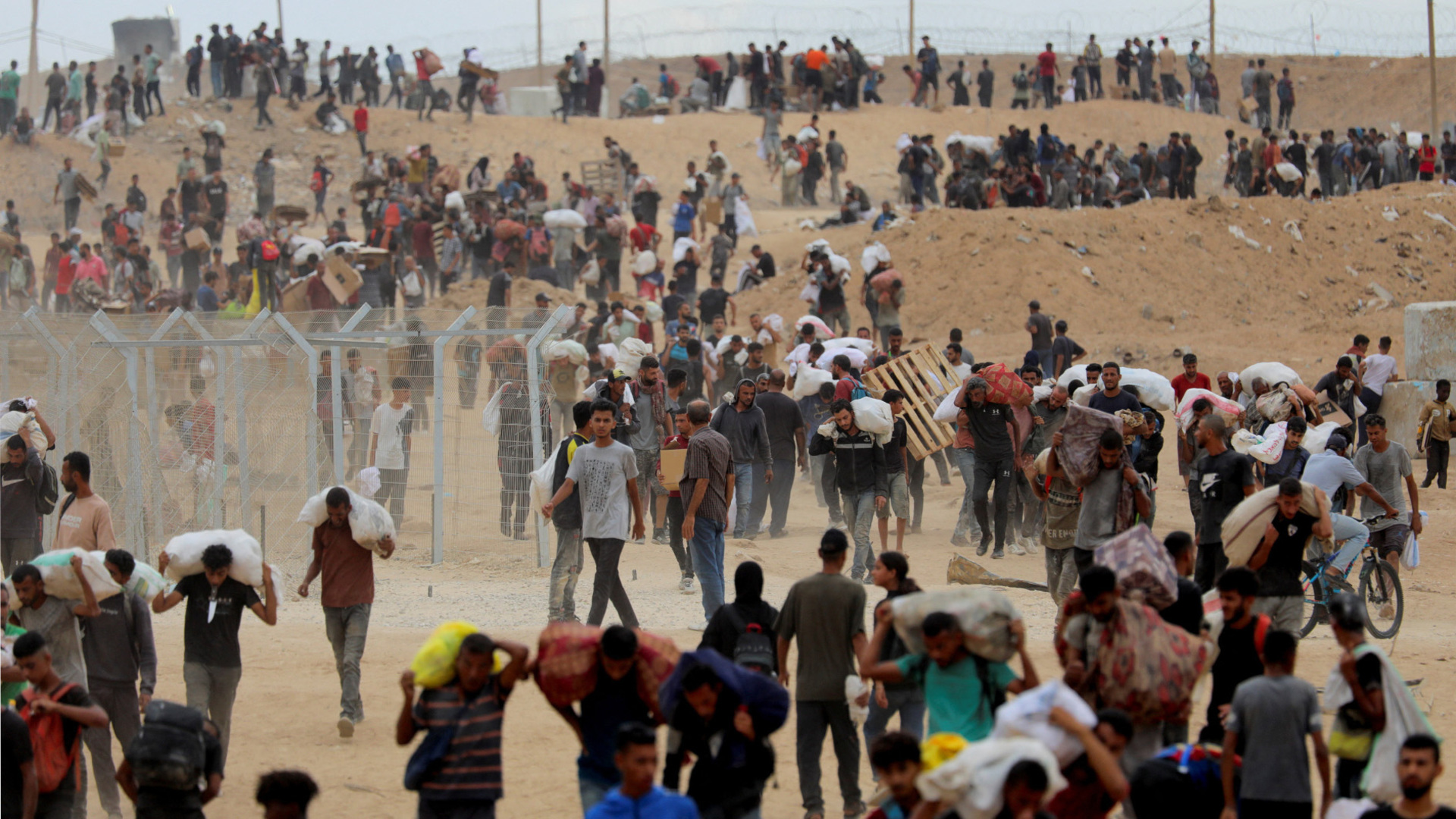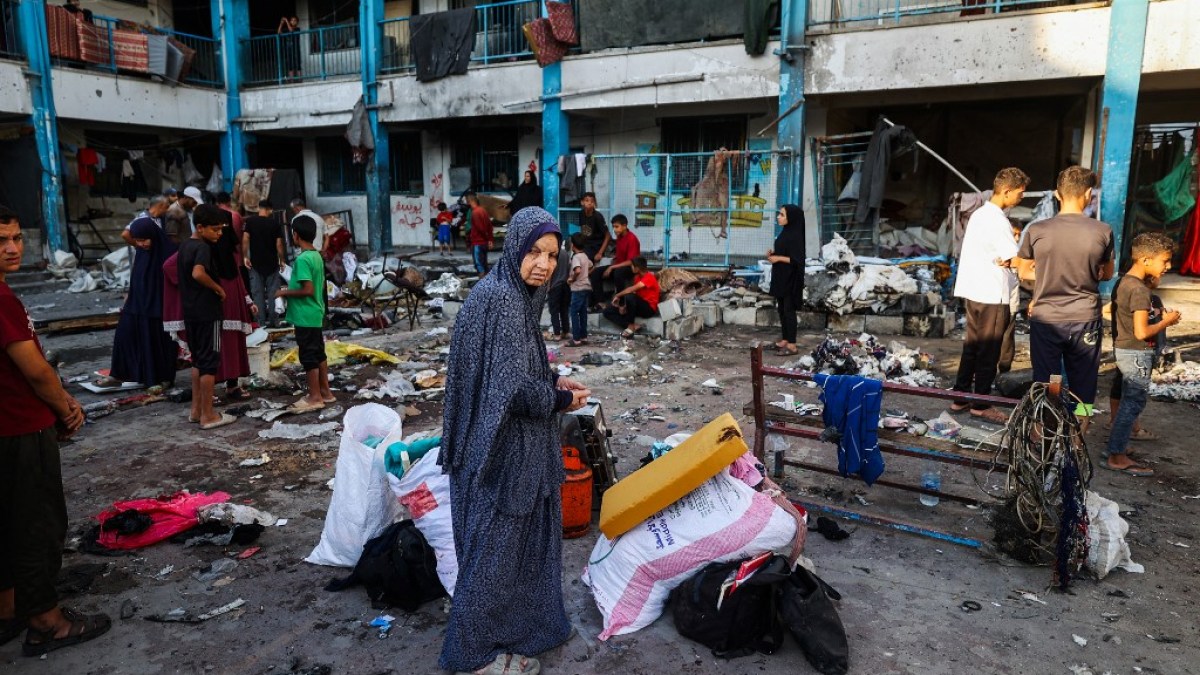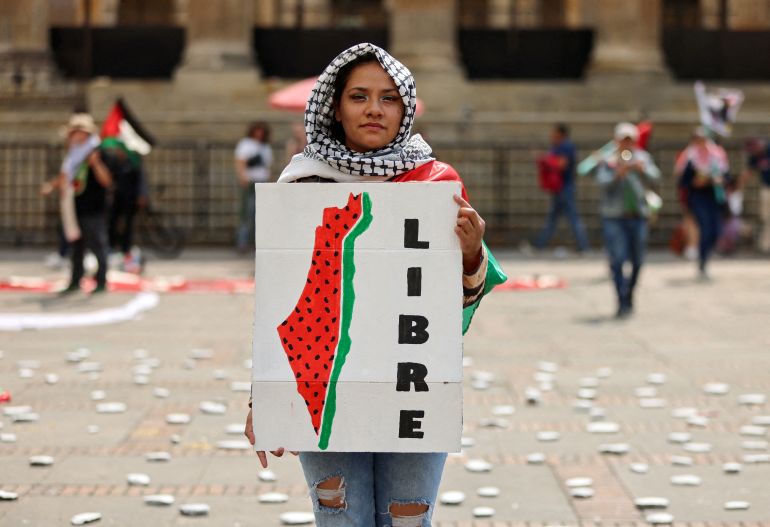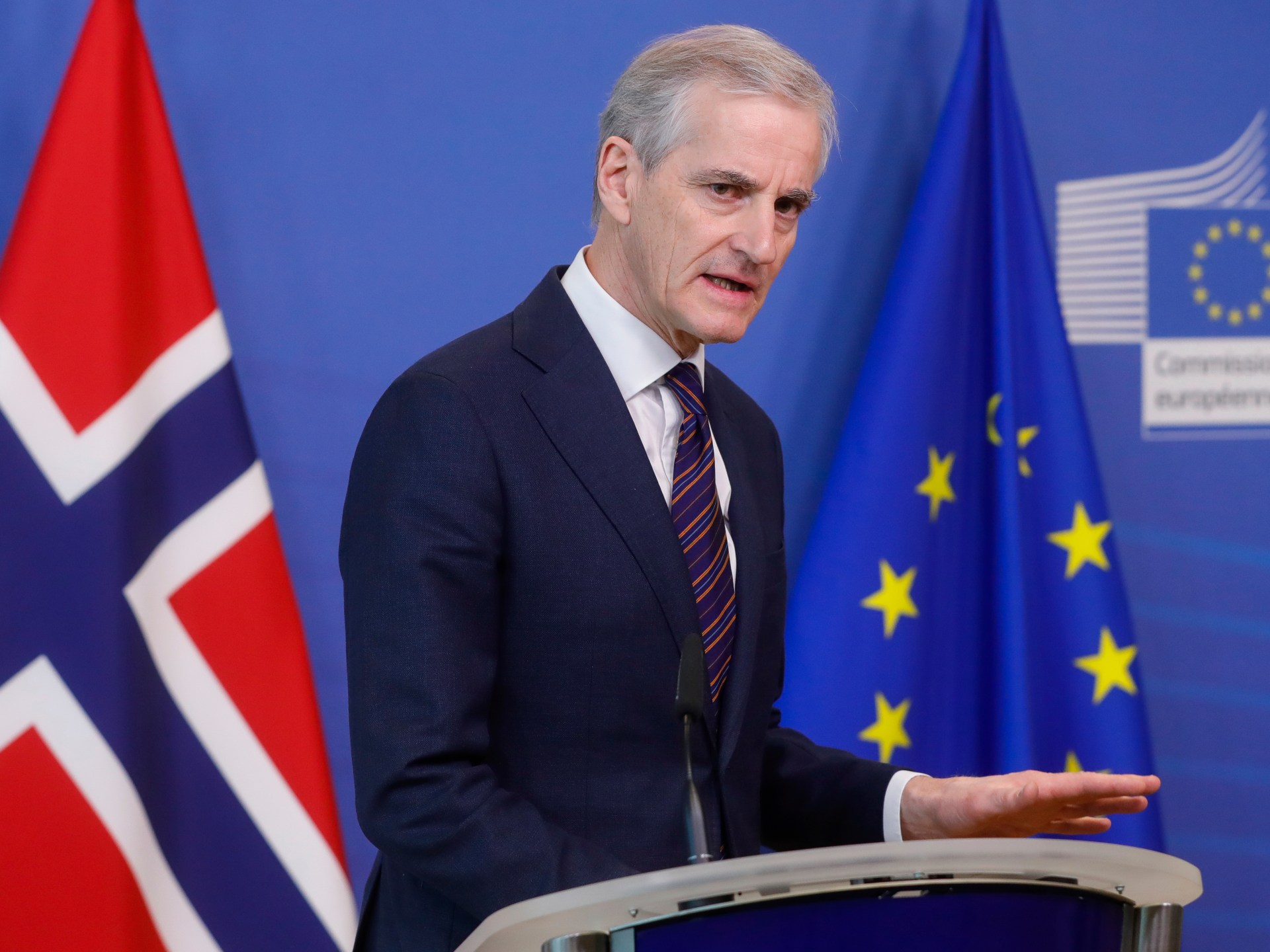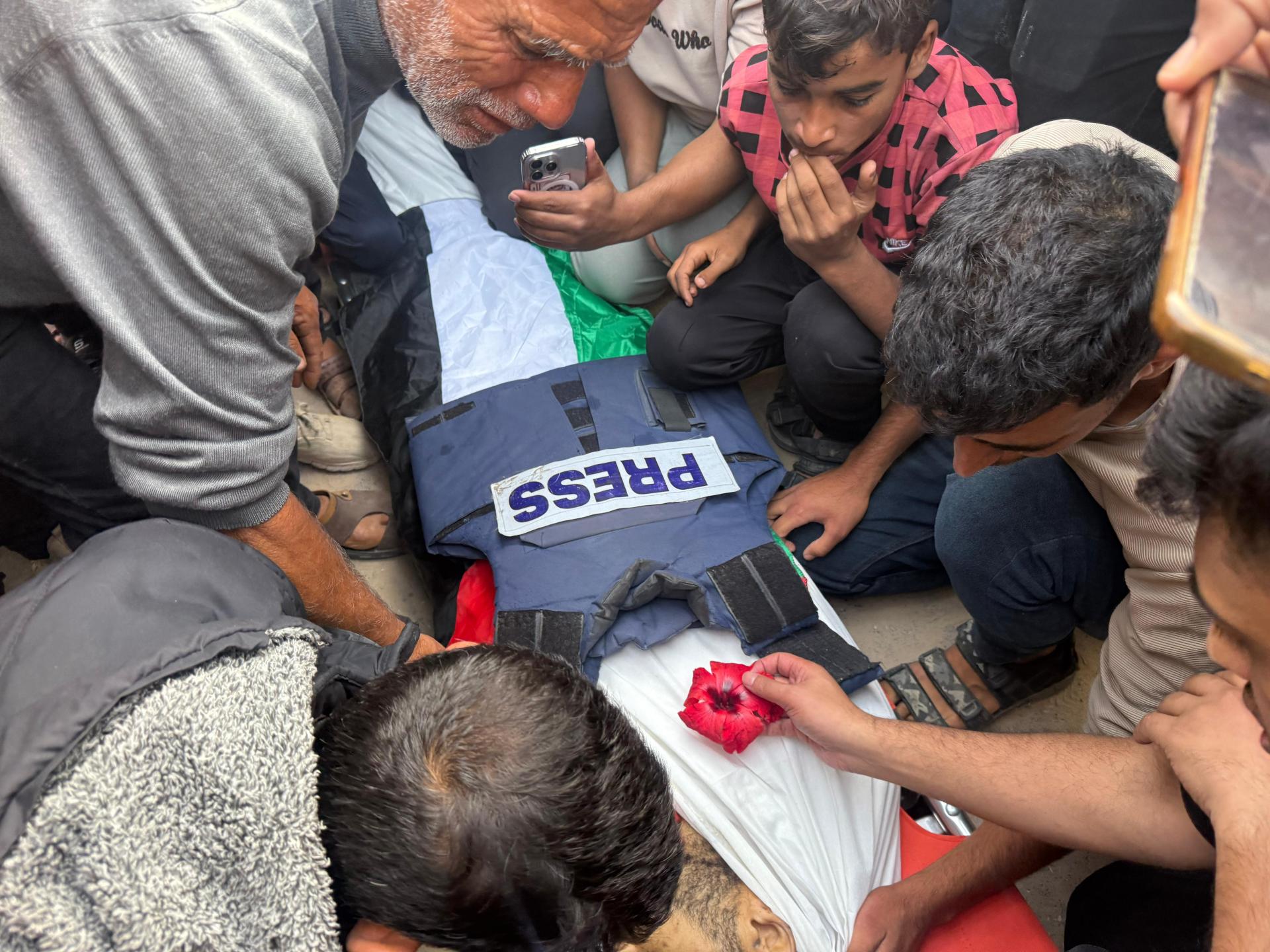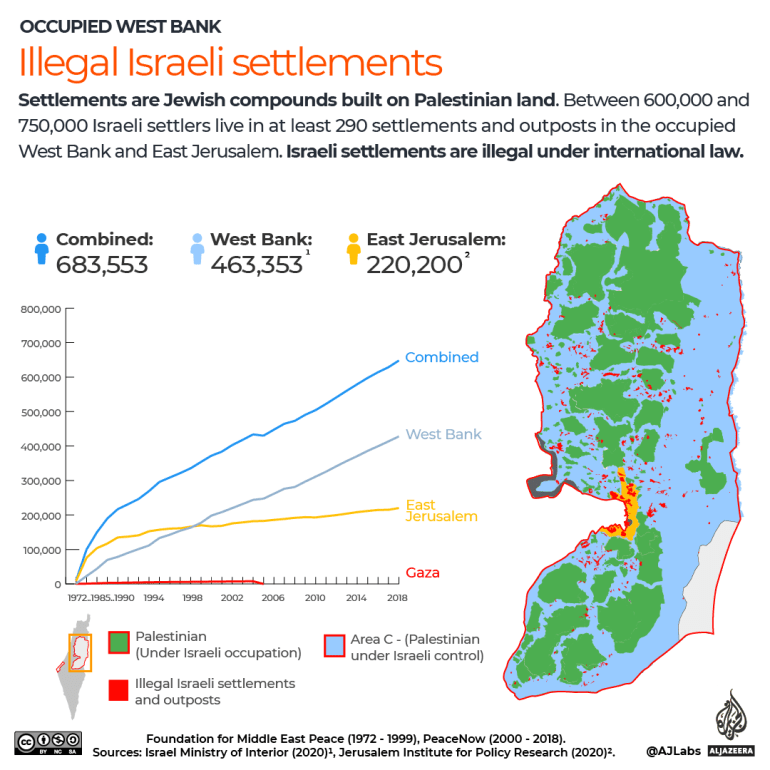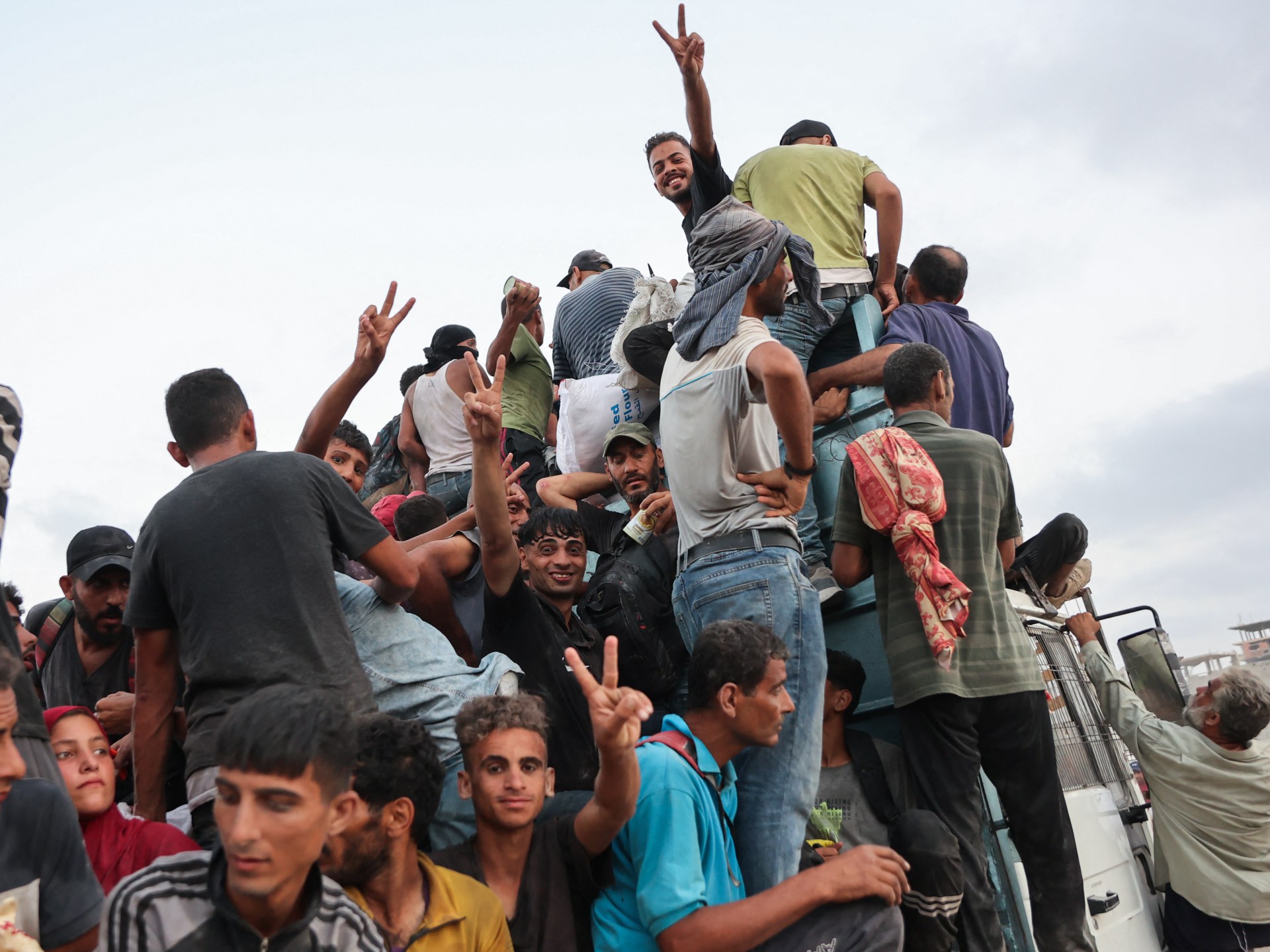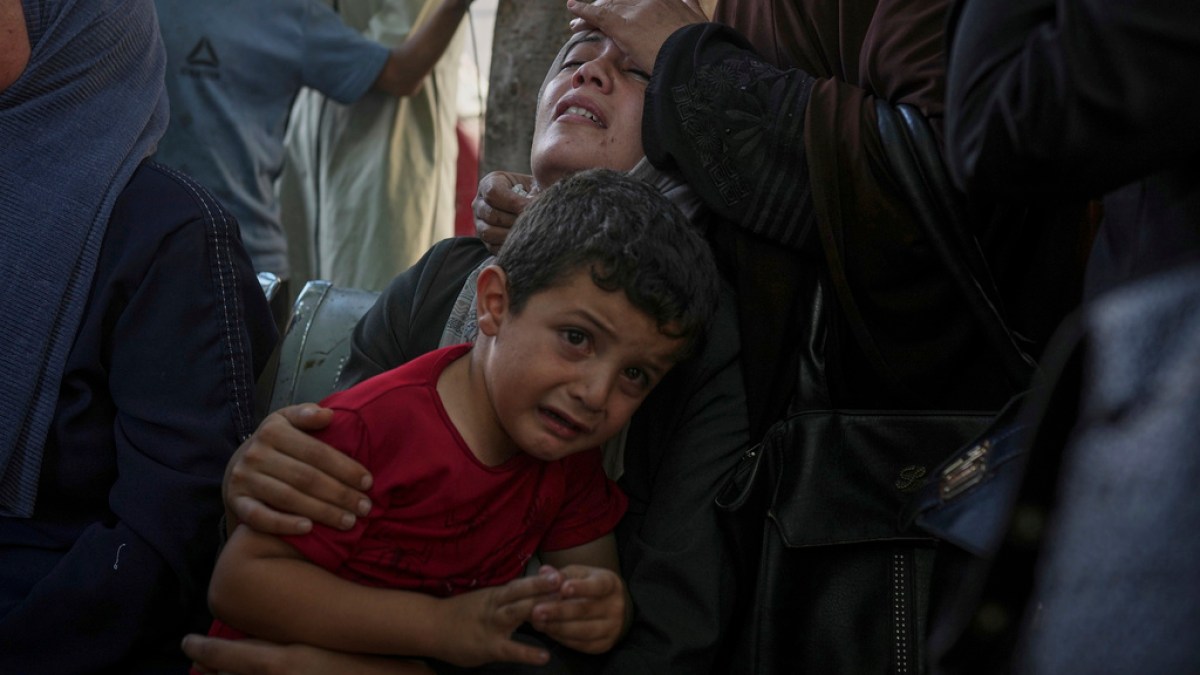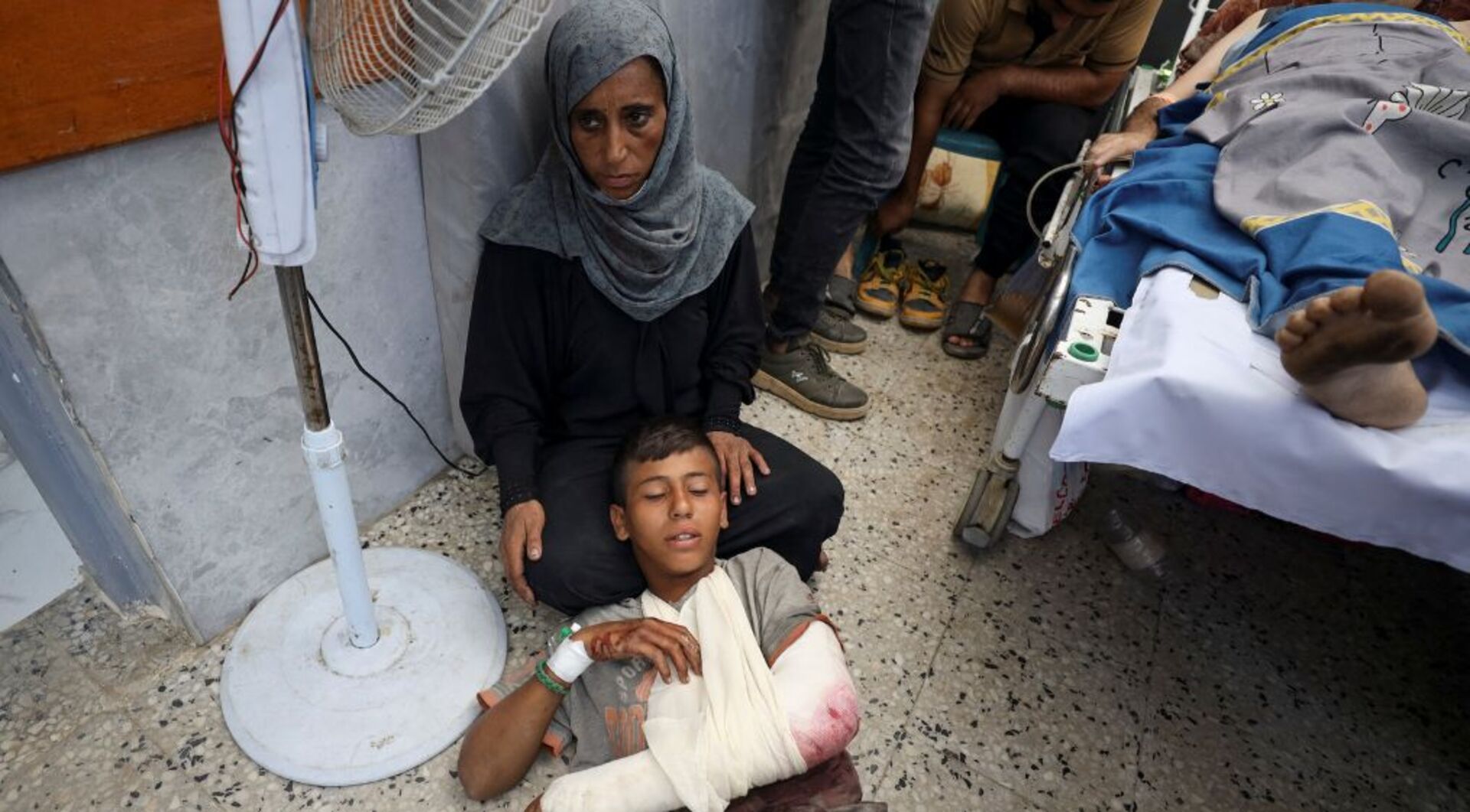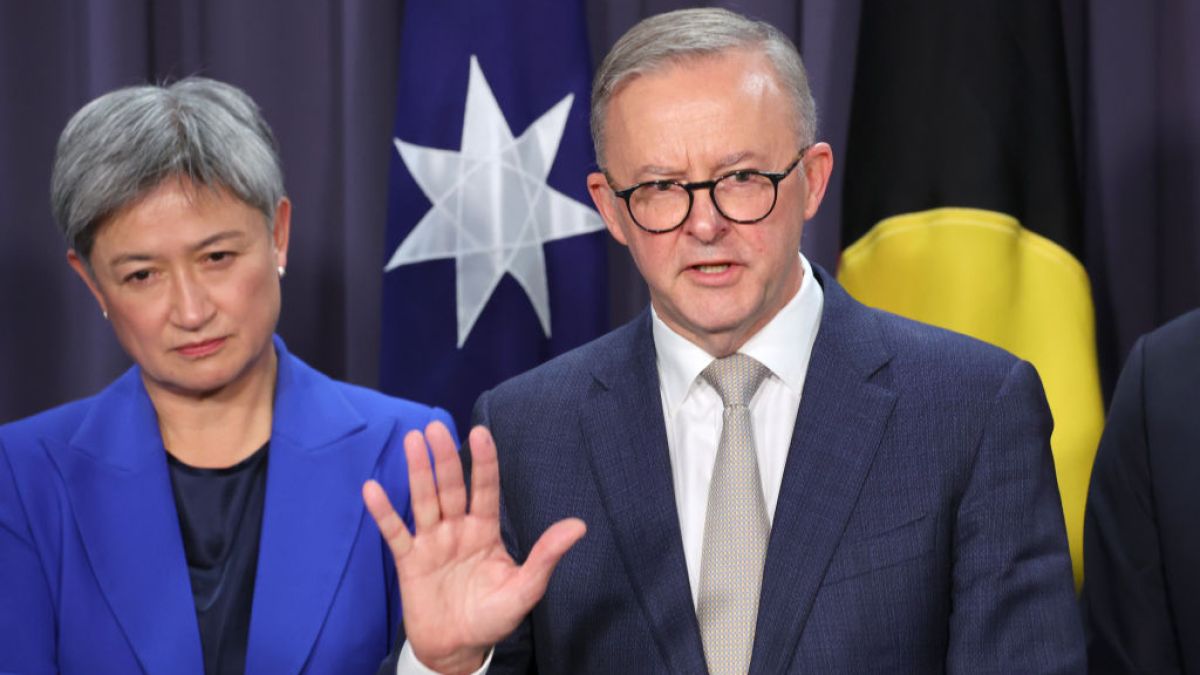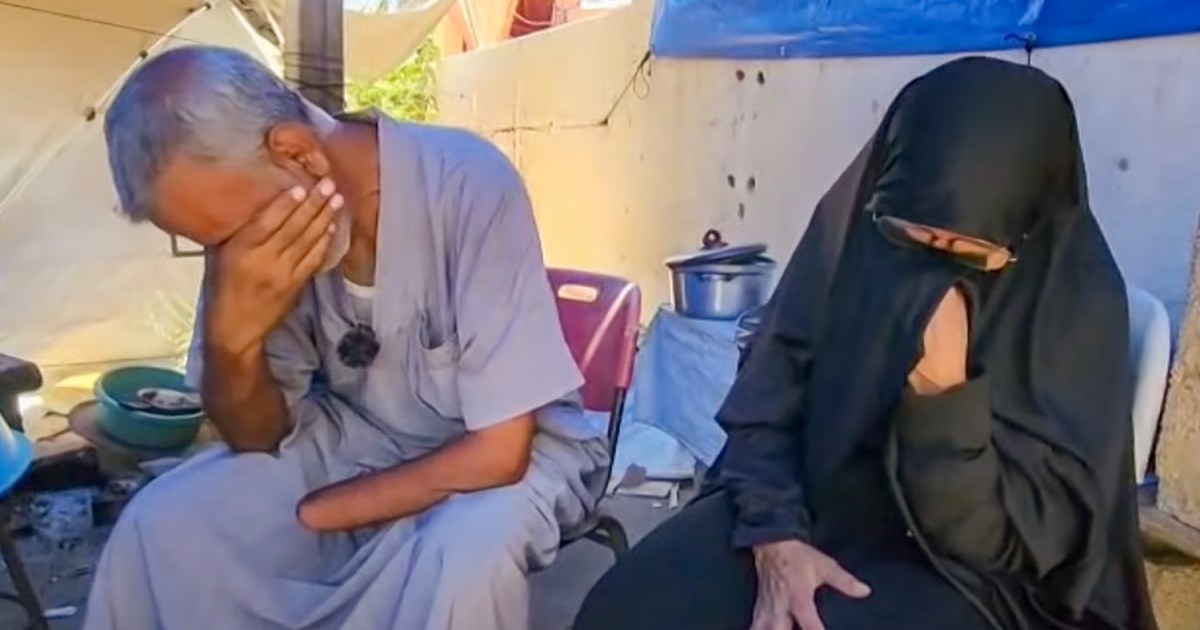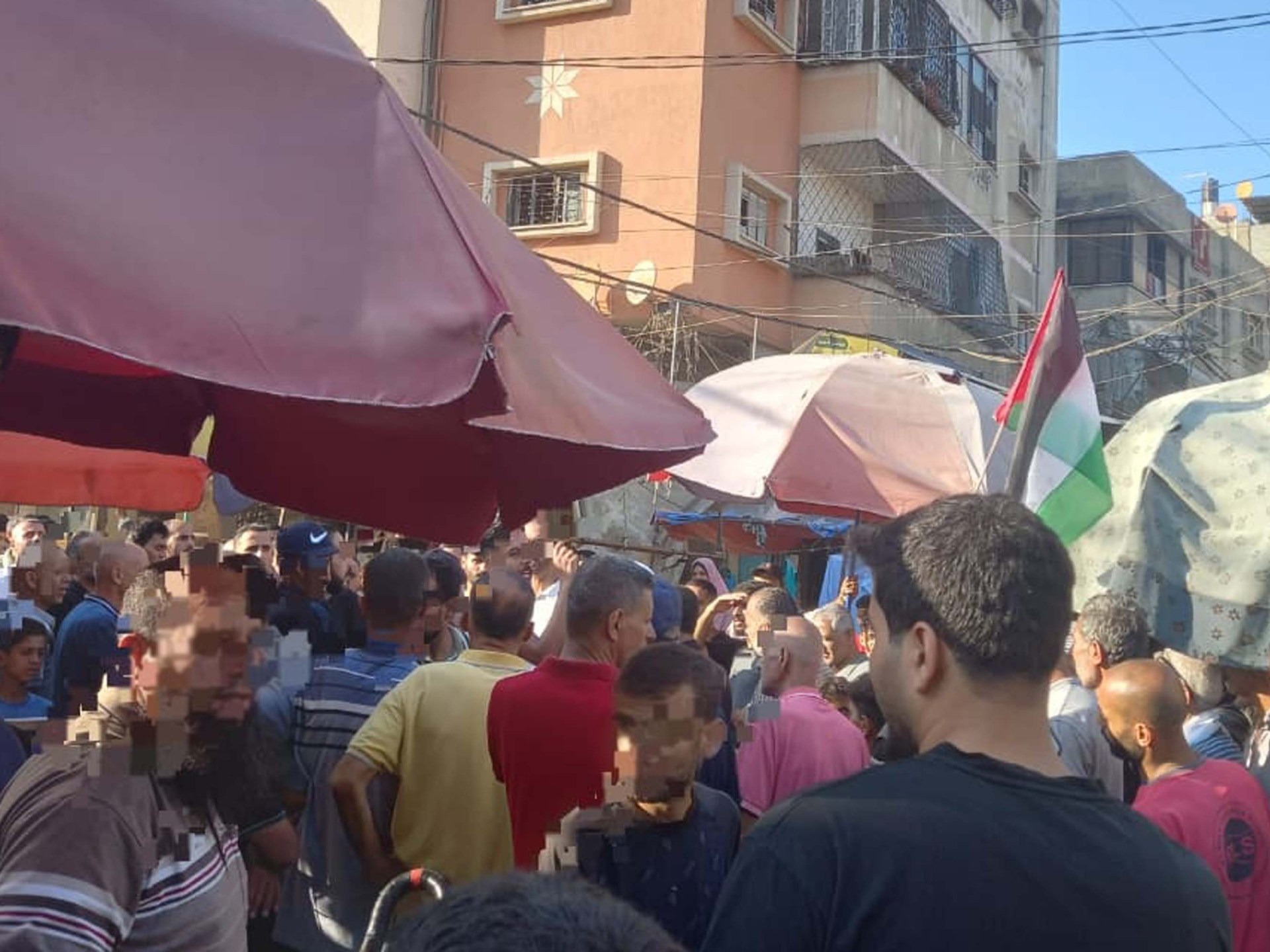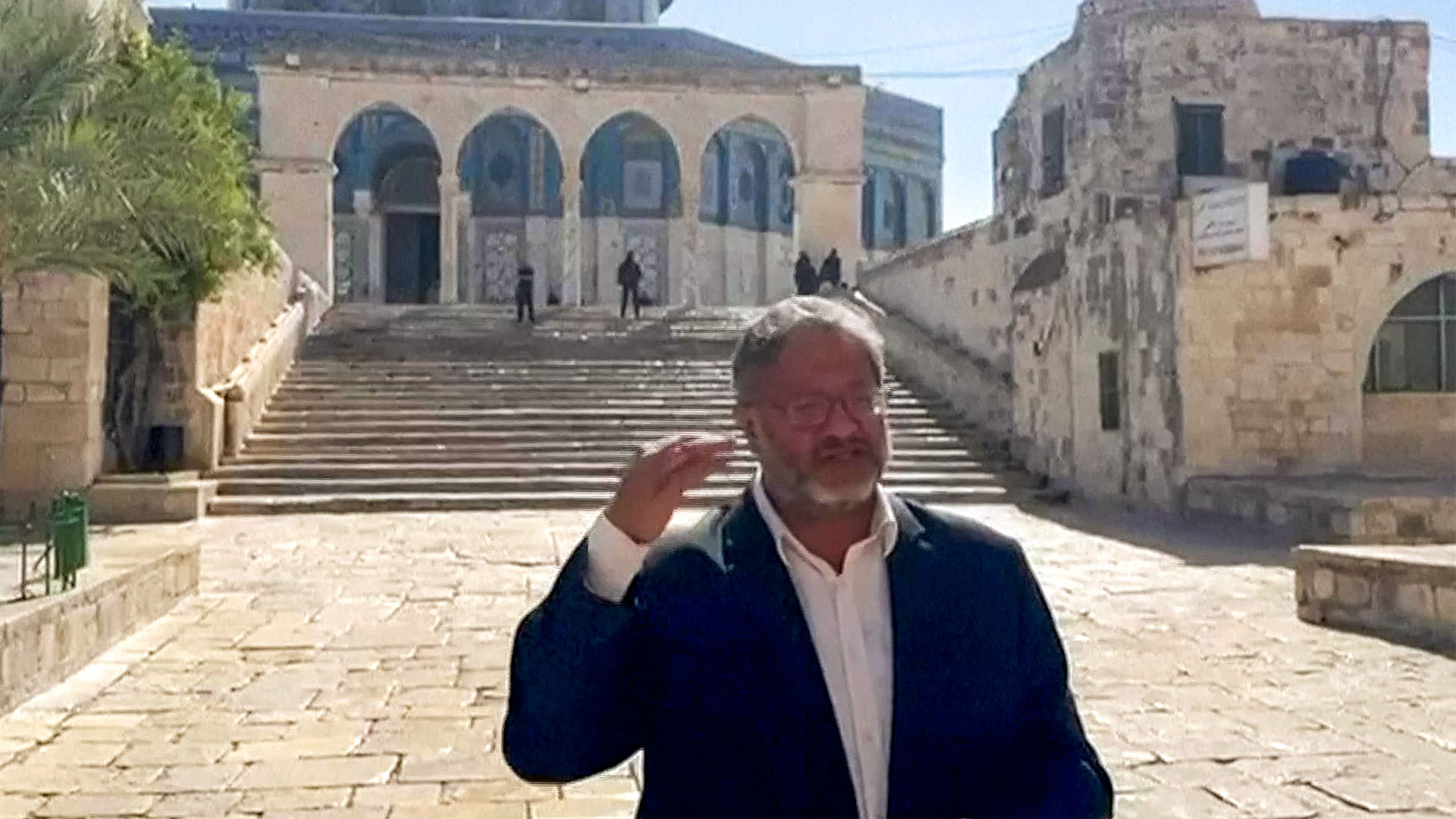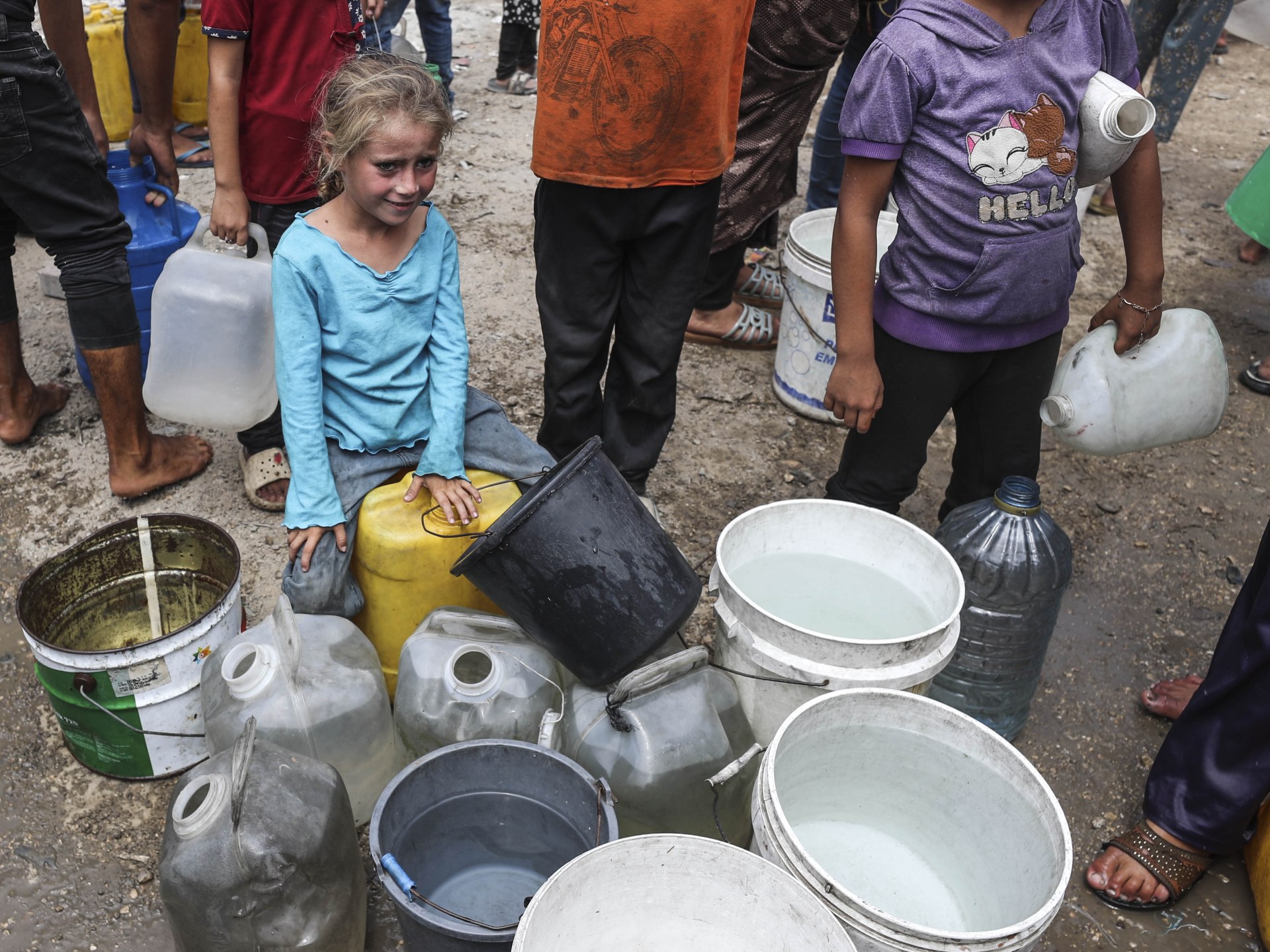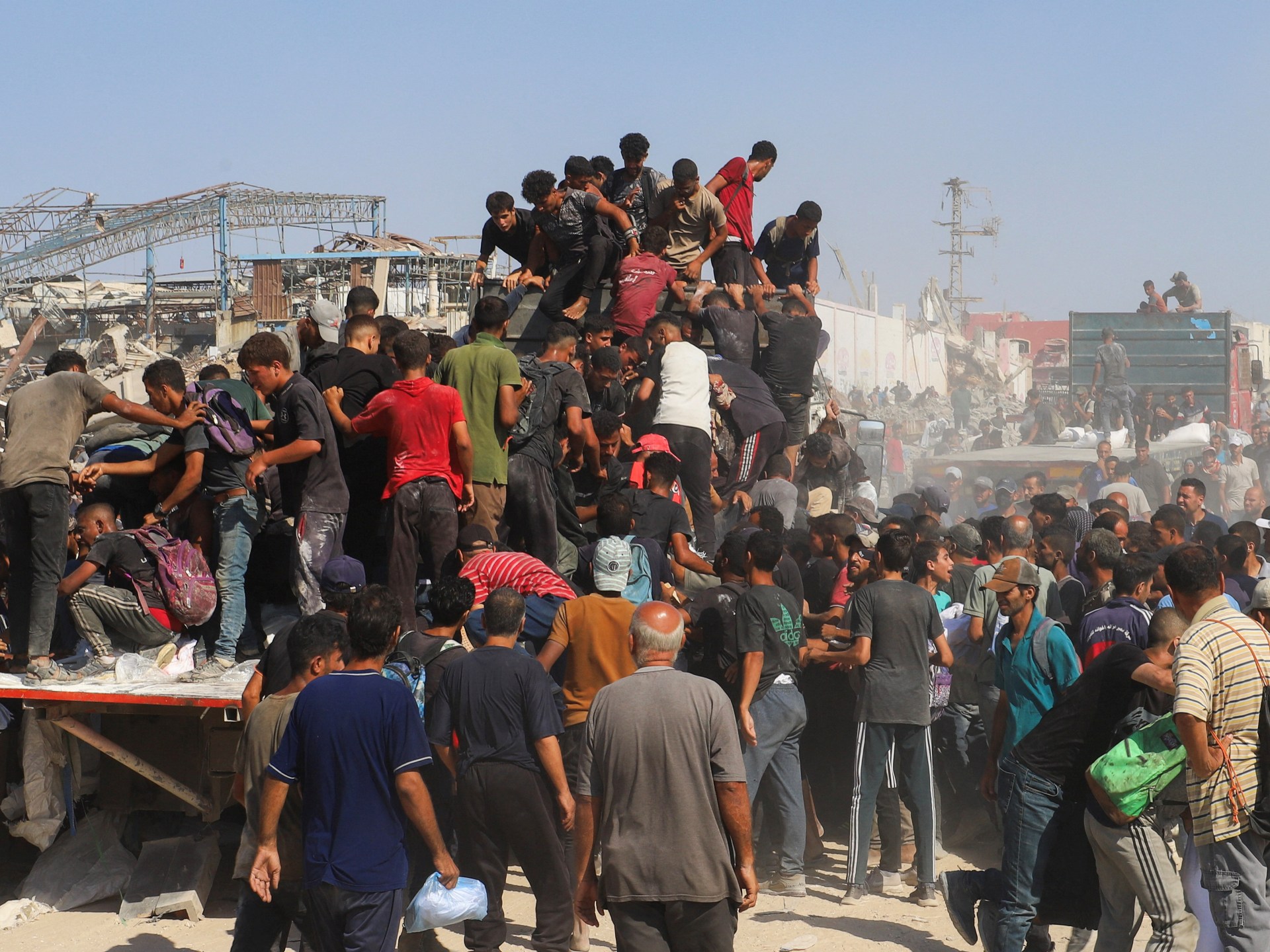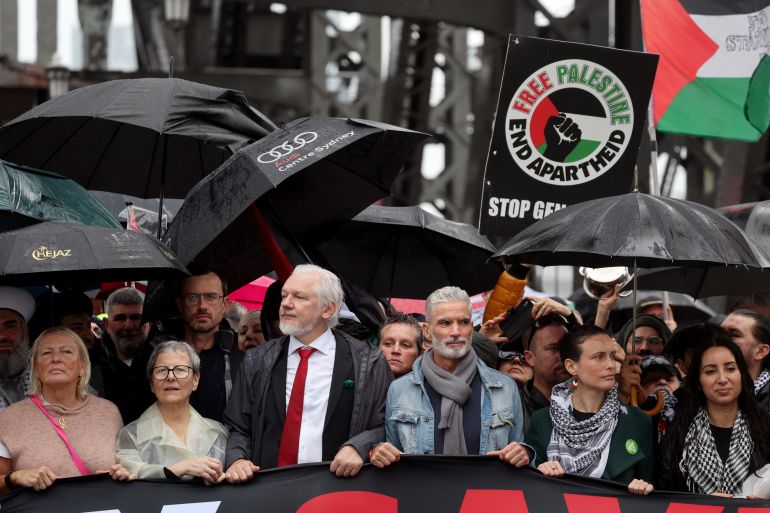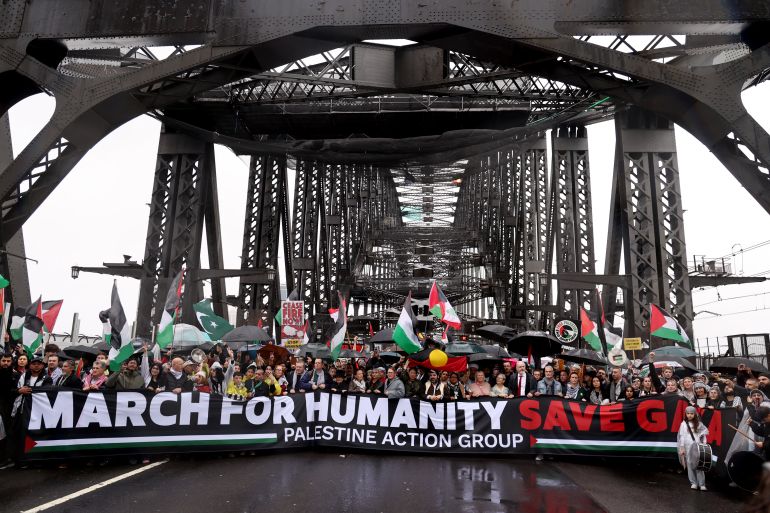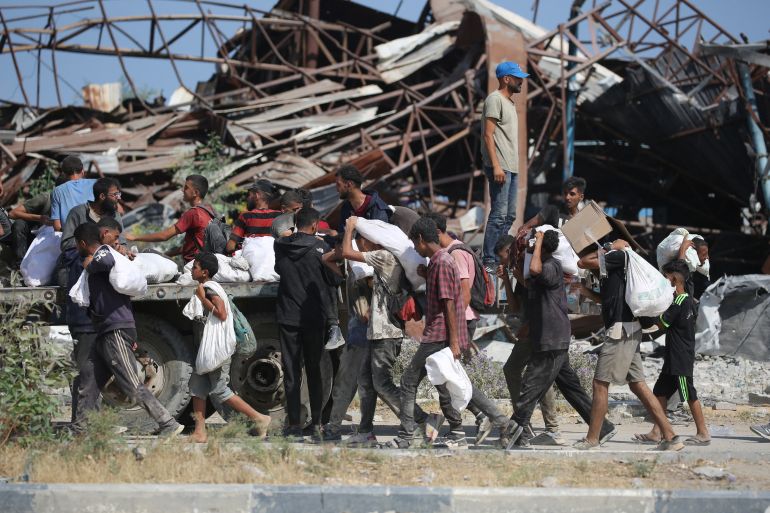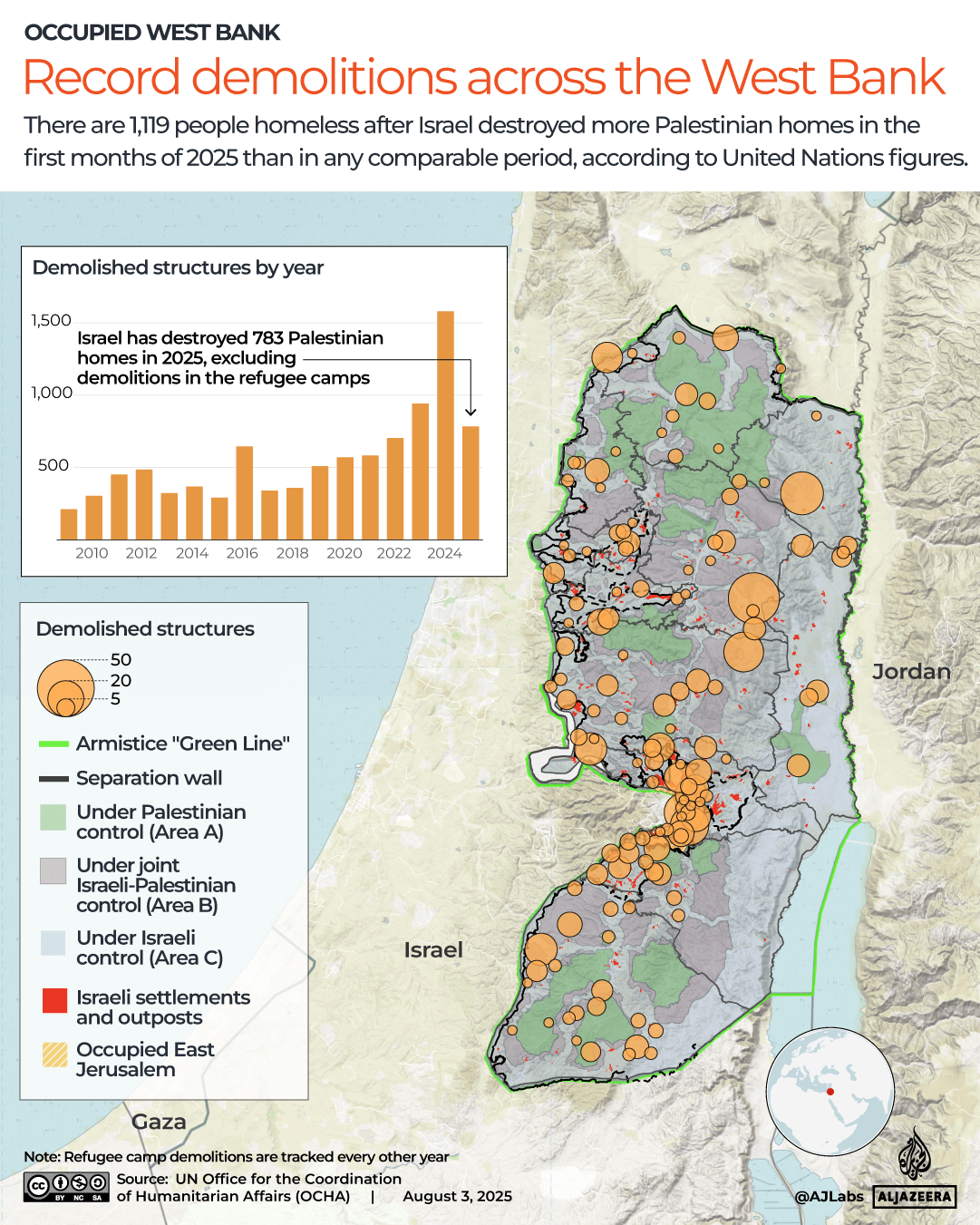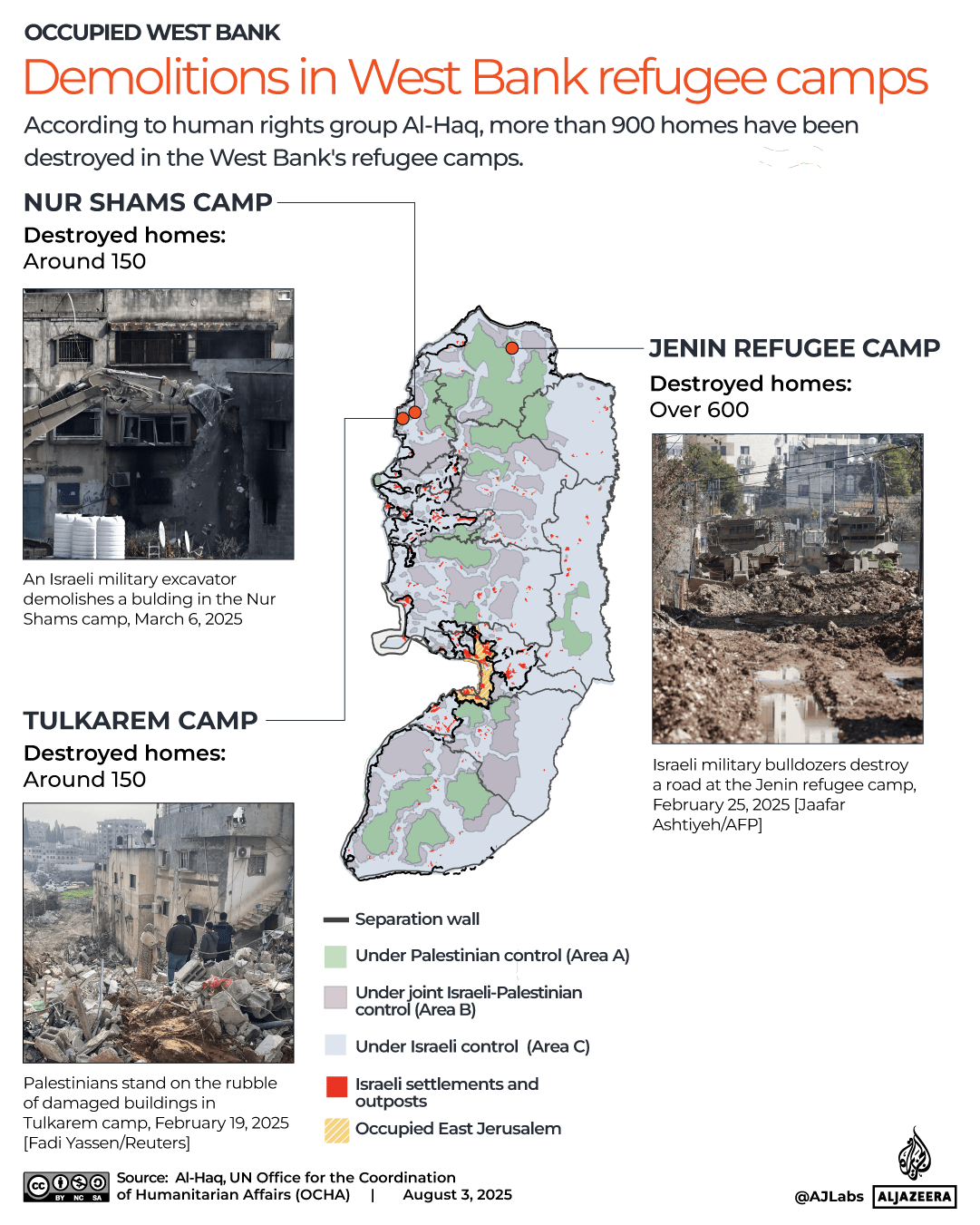The Norwegian government on Tuesday said it would review its sovereign wealth fund’s investment in Israel after the Scandinavian country’s leading newspaper revealed that the nearly $2 trillion fund had a stake in an Israeli company aiding Israel’s war in Gaza.
The newspaper, Aftenposten, identified the company as the Bet Shemesh Engines Ltd (BSEL) group, which provides parts to Israeli fighter jets that are being deployed in its devastating war on Gaza.
In recent weeks, Israeli-induced starvation deaths have caused a global outcry, with Western countries ramping up pressure on Israel to end the war that has killed more than 60,000 Palestinians and ravaged Gaza – home to 2.3 million people.
More than 200 people have died of starvation as Israel has obstructed the entry of humanitarian aid despite its so-called “tactical pause” in its nearly two years of war.
So, what did Norway say, and are Israeli atrocities in Gaza and the rest of occupied Palestinian territory turning the tide of public opinion against it?
What did Norwegian leaders say?
Norwegian Prime Minister Jonas Gahr Stoere said that the investment in the Israeli firm was “worrying”. “We must get clarification on this because reading about it makes me uneasy,” Stoere told public broadcaster NRK.
Finance Minister Jens Stoltenberg, who manages the world’s largest fund, ordered the central bank to conduct a review of the fund portfolio to make sure Israeli companies aiding the occupation of the West Bank or the war in Gaza are barred from investments.
“The war in Gaza is contrary to international law and is causing terrible suffering, so it is understandable that questions are being raised about the fund’s investments in Bet Shemesh Engines,” Stoltenberg, a former NATO chief, said, referring to the growing public and political pressure.
The decision came weeks after Norway’s parliament rejected a proposal for the fund to divest from all companies with activities in the occupied Palestinian territory.
“In light of … the deteriorating situation in Gaza and the West Bank, I will today ask Norges Bank and the Council on Ethics to conduct a renewed review of the fund’s investments in Israeli companies and Norges Bank’s work on responsible management,” Stoltenberg said. Norges Bank is Norway’s central bank.
The independent ethics council, which provides recommendations on which companies should be banned from the oil fund’s portfolio, has since 2009 suggested excluding nine Israeli groups.
How much investment is at stake?
Norges Bank, which manages the $1.9 trillion wealth fund, took a 1.3 percent stake in BSEL in 2023 and raised this to 2 percent by the end of 2024, holding shares worth $15m, the latest available NBIM records show.
The fund held shares in 65 Israeli companies at the end of 2024, valued at $1.95bn, its records show.
The value of its stake was more than four times higher than it was at the end of 2023, shortly after the Hamas-led October 7, 2023, attack that triggered the war. At least 1,139 people were killed in that attack.
The sovereign fund, which owns stakes in 8,700 companies worldwide, has sold its stakes in an Israeli energy company and a telecom group in the last year, and its ethics council has said it is reviewing whether to recommend divesting holdings in five banks.
In May, the sovereign fund decided to divest from Israel’s Paz Retail and Energy for its involvement in supplying infrastructure and fuel to illegal Israeli settlements.
In December 2024, the fund sold all its shares in the Israeli company, Bezeq, for its services provided to the illegal settlements, which are considered the biggest impediments in the realisation of a sovereign Palestinian state as part of the so-called two-state solution.
Moreover, Norway’s largest pension fund has decided to sever its ties with companies doing business with Israel.
KLP, which manages a fund worth about $114bn, said in June that it will no longer do business with two companies – the US Oshkosh Corporation and ThyssenKrupp from Germany, which sell equipment to the Israeli military that is possibly being used in the war in Gaza.
According to the pension fund, it had investments worth $1.8m in Oshkosh and almost $1m in ThyssenKrupp until June 2025.
Last year, KLP also divested from US-based Caterpillar, which makes bulldozers.
Which other funds and companies have severed ties with Israel?
French insurance giant AXA last August reportedly divested from its remaining investments in Israeli banks for funding illegal settlements, according to a report by advocacy group Eko.
Norwegian asset manager Storebrand has also sold shares in some Israeli firms.
The move came after sustained campaigning by human rights groups, who highlighted Israeli rights violations against Palestinians in Gaza and the West Bank.
Another major pension fund from Denmark, its largest, divested from several Israeli banks and companies last February over fears that the investment could be used to fund the illegal Israeli settlements.
The fund has sold its stocks and shares to the tune of 75 million krone ($7.4m) in value.
Last month, Ireland’s sovereign wealth fund divested shareholdings worth more than 1 million euros ($1.2m) from two accommodation companies linked to Israeli settlements. The two companies have been identified as Expedia Group and TripAdvisor, according to media reports.
The Irish government, which has been vocal against Israel’s war on Gaza, divested 2.95 million euros ($3.43m) worth of shares from six other Israeli companies.
Amid pressure from campaigners and activists from Boycott, Divestment and Sanctions (BDS), several corporations have been forced to sever ties with Israel. Shipping giant Maersk was forced to cut ties with companies linked to illegal Israeli settlements in the occupied West Bank in June.
The BDS, a grassroots organisation inspired by the anti-apartheid South Africa movement, calls for economic pressure on the Israeli government to end its occupation of Palestinian lands.
Several of Europe’s biggest financial firms have cut back their links to Israeli companies or those with ties to the country, a Reuters analysis of filings shows, as pressure mounts from activists and governments to end the war in Gaza.
Which countries have taken action against Israel’s genocidal war on Gaza?
Colombian President Gustavo Petro, in July, banned exports of coal to Israel until the genocide stops. “We cannot allow Colombian coal to be turned into bombs that help Israel kill children,” the left-wing president said.
He has also pledged to cease all arms trade with Israel. Under Petro, Colombia has helped set up the Hague Group of 12 countries aimed at pressuring Israel to end its war on Gaza and the occupation of the Palestinian territory.
Spain’s left-wing coalition government in June cancelled a contract for antitank missiles from Israeli company Rafael over the war atrocities in Gaza. The decision will affect a deal worth an estimated 285 million euros ($325m).
Few months earlier, Spain halted a controversial $7.5m deal to buy ammunition from an Israeli company, following criticism from far-left allies within the coalition government.
Madrid has also called for sanctions and an arms embargo on Israel over its Gaza war.
Several Western countries have sanctioned Israeli settlers in the West Bank amid record violence against Palestinians.
In July 2024, Australia sanctioned Israeli settlers, joining France, the UK.
The sanction came after the International Court of Justice (ICJ) issued a nonbinding opinion that all Israeli settlement activity on Palestinian land is illegal and must stop as soon as possible.
In June, Australia, Canada, New Zealand, Norway and the United Kingdom formally sanctioned far-right Israeli ministers, Itamar Ben-Gvir and Bezalel Smotrich, for “incitement of violence” against Palestinians in the occupied West Bank and Gaza.
In the same month, Spain, Ireland and Slovenia called for the suspension of the EU-Israel Association Agreement. Sweden has also asked the European Council to adopt sanctions “against Israeli ministers who promote illegal settlement activities and actively work against a negotiated two-state solution”.
The EU provides millions of dollars in funds to Israel as part of its Horizon Europe research projects, while Western leaders have defended Israel for its war atrocities in Gaza and also shielded it from the United Nations resolutions critical of its abuses.
Western countries have also been criticised for failing to arrest Israeli Prime Minister Benjamin Netanyahu and former Defence Minister Yoav Gallant, who face warrants from the International Criminal Court for war crimes in Gaza.
Last month, the United Nations special rapporteur on the situation of human rights in the occupied Palestinian territory, Francesca Albanese, released a new report mapping the corporations aiding Israel in the displacement of Palestinians and its genocidal war on Gaza, in breach of international law.
